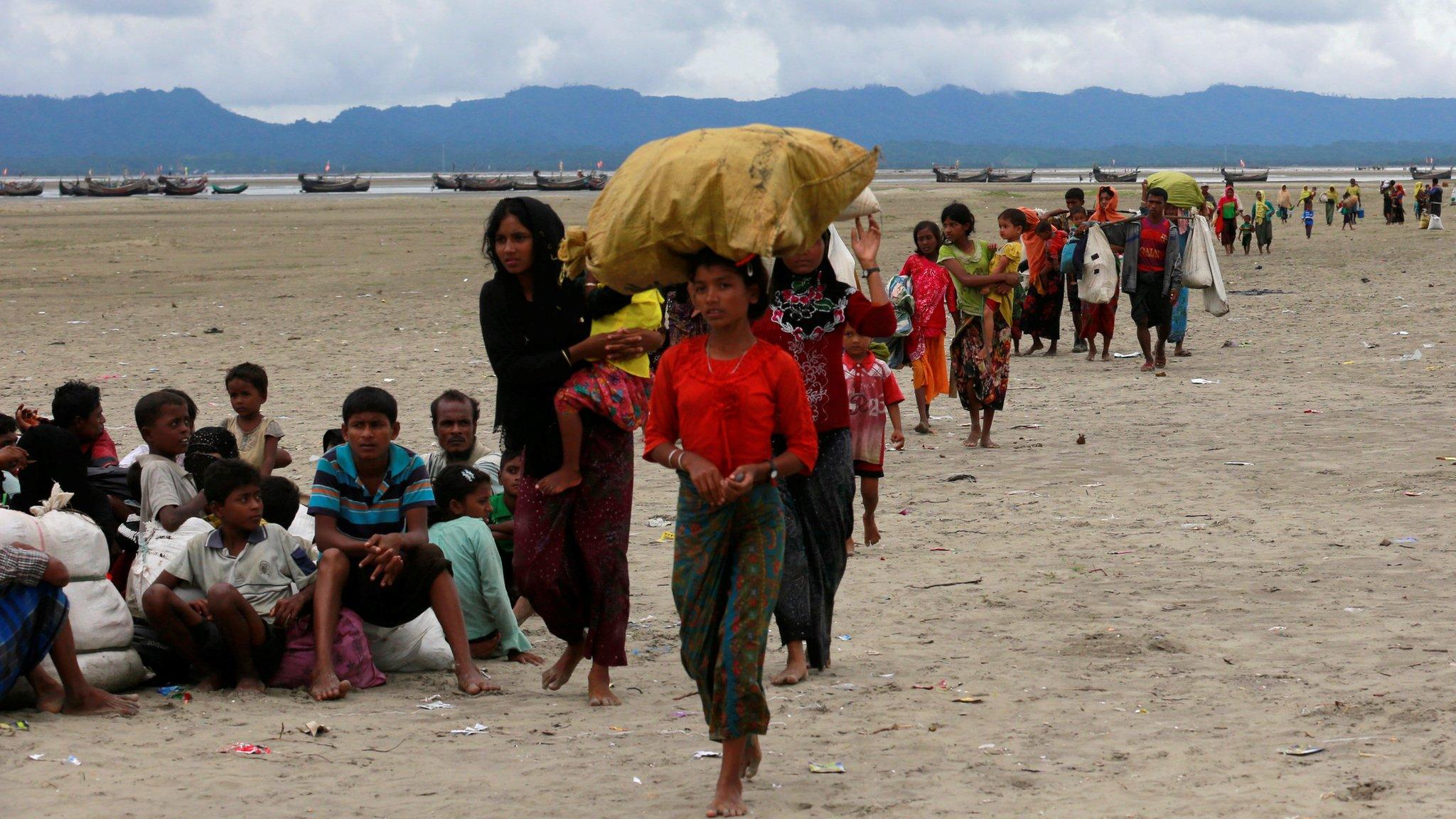Myanmar denounces UN's 'ethnic cleansing' suggestion
- Published
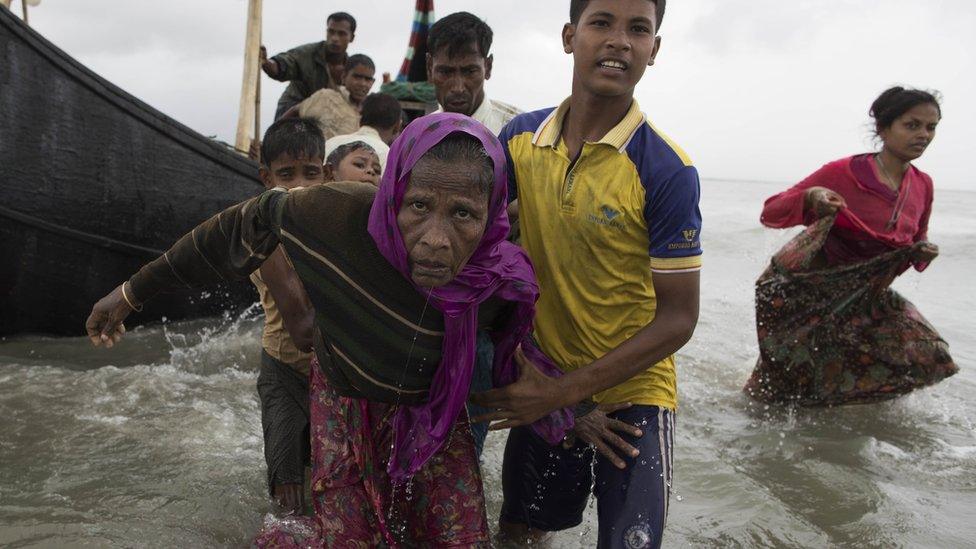
Hundreds of thousands of Rohingya Muslims have crossed the border to Bangladesh
Myanmar has denounced the suggestion by the UN human rights chief that its treatment of Rohingya Muslims amounts to "ethnic cleansing".
The country's envoy to the UN blamed Rohingya insurgents for the violence in Rakhine state, saying that Myanmar would never tolerate such atrocities.
Some 370,000 Rohingyas have crossed the border to Bangladesh since the situation escalated last month.
The UN Security Council is due to meet on Wednesday to discuss the crisis.
Myanmar's military says it is fighting Rohingya militants and denies it is targeting civilians.
But many of those who have fled say troops responded to attacks by Rohingya militants on 25 August with a brutal campaign of violence and village burnings aimed at driving them out.
The Rohingyas, a stateless mostly Muslim minority in Buddhist-majority Rakhine, have long experienced persecution in Myanmar, which says they are illegal immigrants.
On Monday, the UN High Commissioner for Human Rights, Zeid Raad Al Hussein, urged Myanmar to end the "cruel military operation", saying that it seemed "a textbook example of ethnic cleansing".
The following day Myanmar ambassador's Htin Lynn said those allegations were unhelpful and wrong.
"The terms crimes against humanity and ethnic cleansing carry very serious connotations. They can only be used in the most responsible manner and they can only be founded on legal and judicial determinations," he told the UN Human Rights Council in Geneva.
"Democratic Myanmar shall never tolerate such atrocities. I would like to place on record Myanmar's strong objection to the use of such terms by the high commissioner."
Aid agencies say Rohingya refugees from Myanmar are in desperate need of aid
The BBC has spoken to Rohingyas maimed by landmines as they fled Myanmar. Bangladeshi sources say Myanmar's army recently planted new mines, an allegation denied by Myanmar officials.
Meanwhile, Bangladesh has urged Myanmar to take back hundreds of thousands of Rohingyas who have fled the violence.
The country is already home to hundreds of thousands of Rohingyas who have fled previous outbreaks of violence in Myanmar.
Two official refugee camps are full and aid agencies say the new arrivals desperately need food, shelter and medical help.
"My personal message is very clear, that they [Myanmar] should consider this situation with the eyes of humanity," Bangladesh's Prime Minister Sheikh Hasina told the BBC after visiting the Kutupalong camp.
The Bangladeshi Prime Minister spoke to the BBC on a visit to a Rohingya refugee camp
"Because these people, innocent people, the children, women, they are suffering. So these people, they belong to Myanmar. Hundreds of years they are staying there. How they can deny that they are not their citizens?"
She said her country would offer Rohingyas shelter until Myanmar took them back.
She also condemned the militants for their role in the violence, but said Myanmar's government should have dealt with the situation more patiently.
Rohingya families have been arriving in Bangladesh from Myanmar in waves since the 1970s. About 32,000 registered refugees live in the two official camps, but more than 300,000 undocumented Rohingyas were also estimated to be in Bangladesh before this latest influx.
Azizu Haque lost his legs in a blast, as Reeta Chakrabarti reports
Bangladesh says their presence strains local resources, increases crime and deters tourists in the Cox's Bazar area.
Earlier this year, it backed a plan to transfer them to an island in the Bay of Bengal, Thengar Char, but rights groups said the island was unfit for human habitation due to seasonal flooding.
Myanmar is facing mounting criticism over the Rohingya crisis and there have been protests in several Muslim-majority nations.
- Published11 September 2017
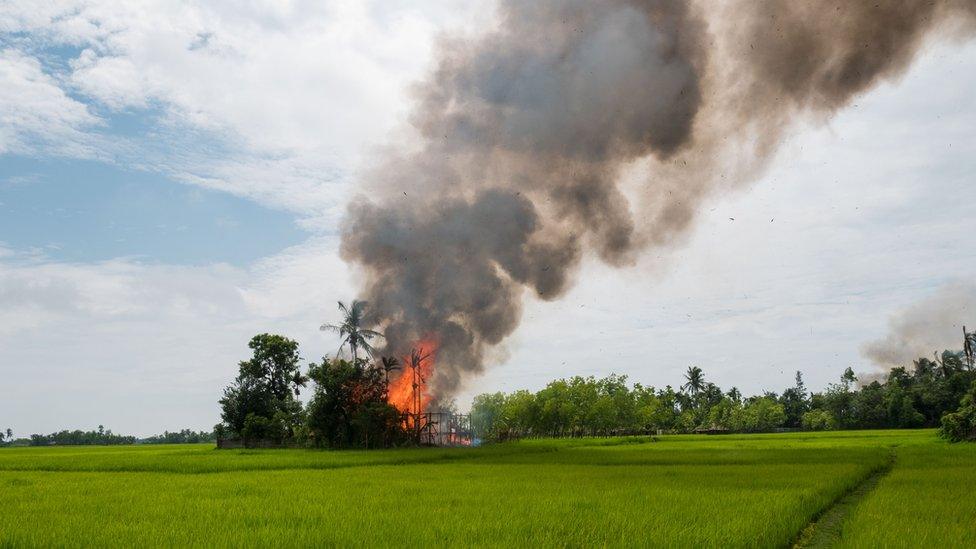
- Published6 September 2017
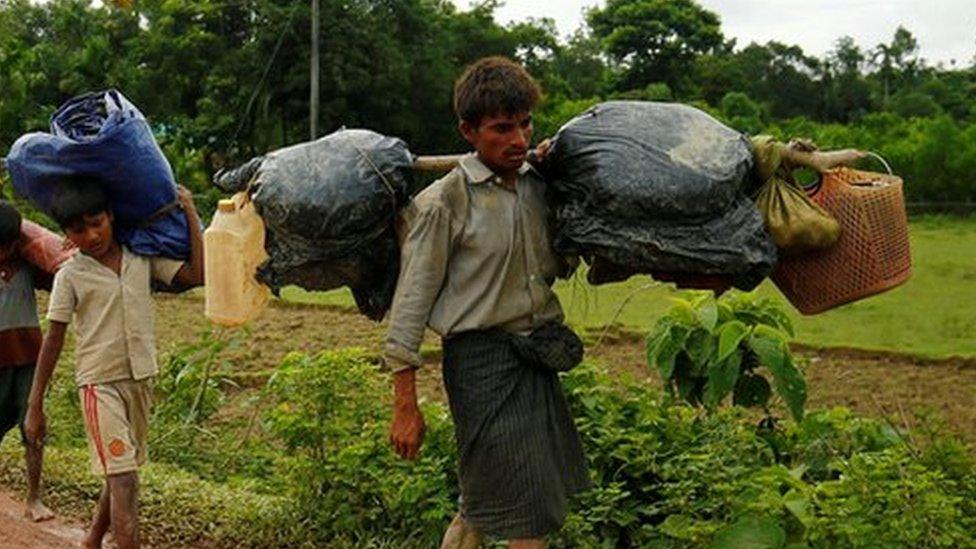
- Published8 September 2017
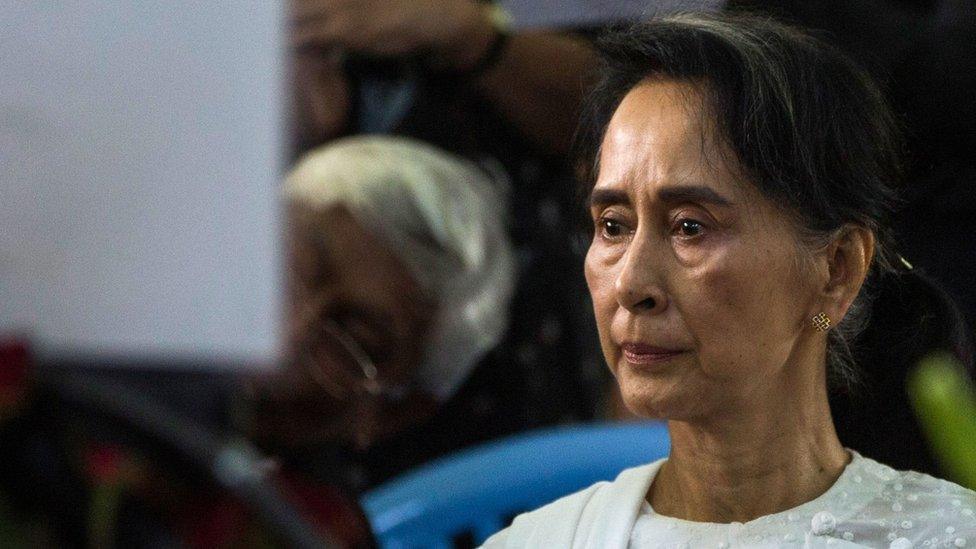
- Published19 September 2017
